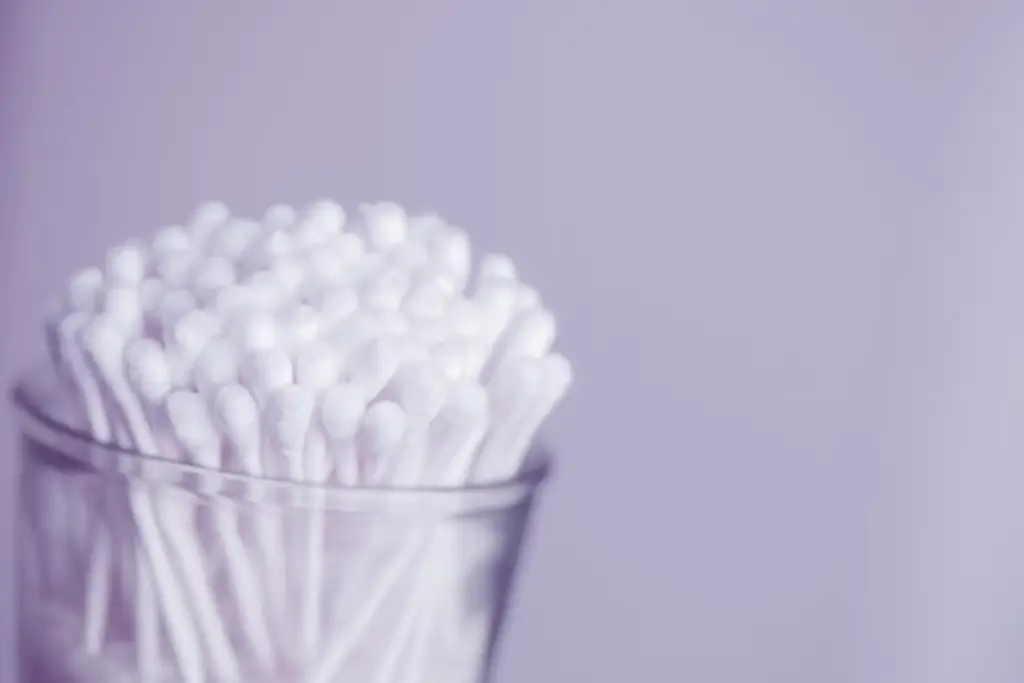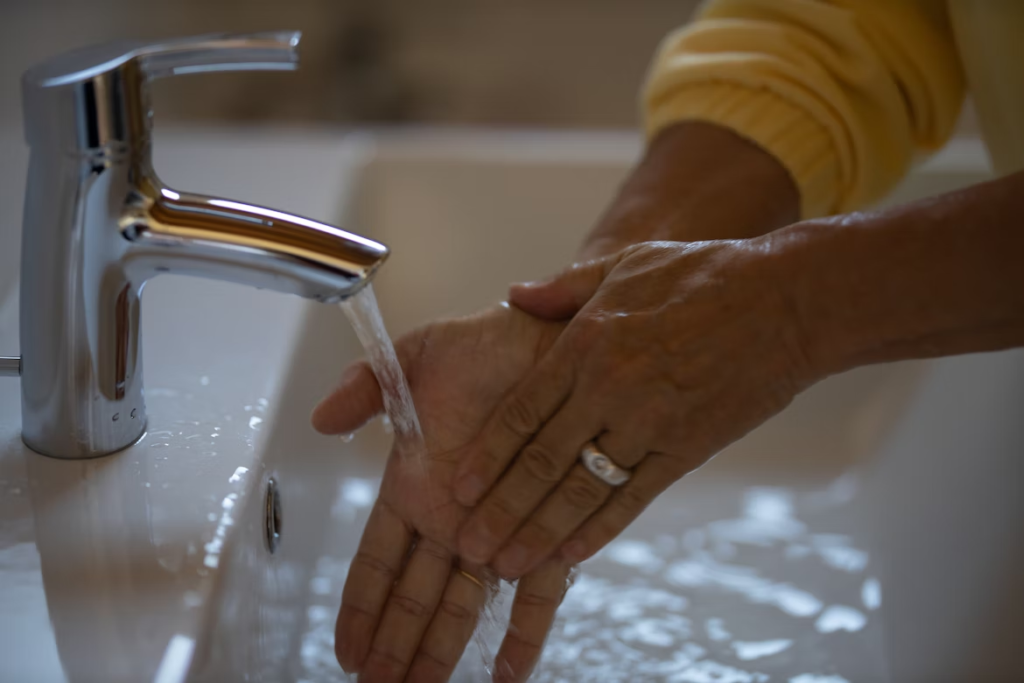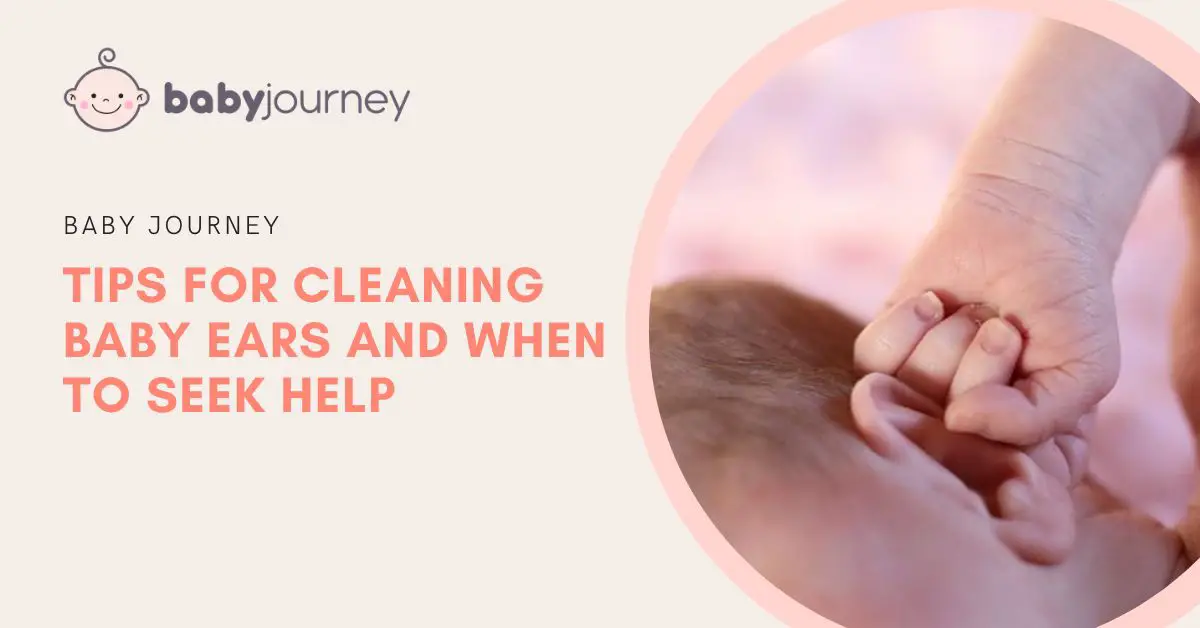The ear is one of the most sensitive parts of the body. Even for an adult, cleaning the ear can be a tricky task. One slight mistake and you could end up with a painful ear infection.
The task can be even more challenging when it comes to cleaning baby ears. Not every part of the ear is fully developed, and the delicate nature of a baby’s ear makes them especially prone to infection. Here are some tips to safely and effectively clean baby ears.
Don’t Use a Cotton Swab

Cotton swabs are one of the most common tools used for cleaning ears. However, they can be dangerous and even cause injury. For babies, you should never use cotton swabs to clean their ears as they can easily damage the delicate skin or push wax further into their ear canal.
They can also penetrate too deeply into the ear canal and cause damage to the eardrum.
Instead of using cotton swabs, experts recommend using a warm washcloth when cleaning baby ears. Start by dampening the cloth with warm water and gently wiping around the ear’s outer part and behind it. If any wax is visible, use a few drops of mineral oil to soften it before carefully wiping it away.
Don’t Over Clean
It is easy to get carried away when cleaning, but it is essential to remember that too much of a good thing can be harmful. Too frequent or aggressive cleaning can cause inflammation, pain, and discomfort in the ears. The ears are self-cleaning organs, so unless there is wax buildup, there shouldn’t be a need to clean them more than once a week.
You can avoid over-cleaning using gentle and slow strokes when cleaning the ears. Use a very soft cloth, as anything else could scratch or irritate the ear canal.
Don’t Insert Anything Into the Ear
The ear is a susceptible organ, and anything inserted into the ear can lead to irritation and damage. This includes cotton swabs, hairpins, and safety pins. If you need to clean the inside of your baby’s ears, it is best to consult a doctor or professional first.
Whether you use a wet cloth or a specialist tool like an ear curette, you should never attempt to clean the inner part of your baby’s ear on your own. Avoid any eardrops, unless prescribed by a doctor, as many of these can contain chemicals that may cause harm.
Wash Your Hands Before Cleaning

You can quickly transfer germs and bacteria to the ears, so it is vital to make sure you wash your hands before even touching the ear. This will reduce the risk of unwanted bacteria entering their body and causing an infection. Ensure the cloth you use is freshly washed and free of dirt or debris.
Avoid Cleaning the Ears of a Sleeping Baby
It is usually better to avoid cleaning the ears of a sleeping baby, as it can be difficult to tell how much pressure you are applying. Instead, try cleaning their ears when they are awake and keep them distracted with some baby toys so that they can remain calm during the process. Any sudden movements could cause damage to the ear.
When to Seek Help
Sometimes, regular cleaning may not be enough. If your baby’s ears emit a bad odor or wax is still visible after you have tried to clean them, it is best to consult a doctor or professional. They may prescribe eardrops or suggest a different form of cleaning, such as an ear-curette.
Watch out for any discharge from the ear, redness, or swelling, which could indicate an infection. In such cases, it is essential to seek medical help right away. Any delays could cause further damage to the ear.
The same applies if any foreign object has accidentally entered the ear. It is best to seek medical help immediately, as this can cause a severe infection if left untreated. Some objects may also need to be removed by a specialist.
If your baby is uncomfortable when cleaning their ears, stop immediately and consult a doctor. A doctor can diagnose the problem and suggest the best course of action.
Remember, early intervention could save them from potential hearing loss. If you notice any unusual changes or signs of infection in your baby’s ears, companies like HearCanada have a team of specialists who can identify the problem and recommend the ideal treatment. With the help of a qualified healthcare provider, you can protect your baby’s hearing and make sure they have the best start in life possible.
Cleaning your baby’s ears is an integral part of their hygiene routine. However, it is important to remember that the ear is a sensitive organ and needs to be treated with care. Do not insert anything into the ear, do not over-clean, and make sure you wash your hands before cleaning.
If there are any signs of infection or discomfort when cleaning, contact a doctor immediately. With the help of a qualified medical professional, you can ensure your baby’s hearing health is in tip-top condition.

 PARENTING TIPS
PARENTING TIPS PREGNANCY
PREGNANCY BABY CARE
BABY CARE TODDLERS
TODDLERS TEENS
TEENS HEALTH CARE
HEALTH CARE ACTIVITIES & CRAFTS
ACTIVITIES & CRAFTS


